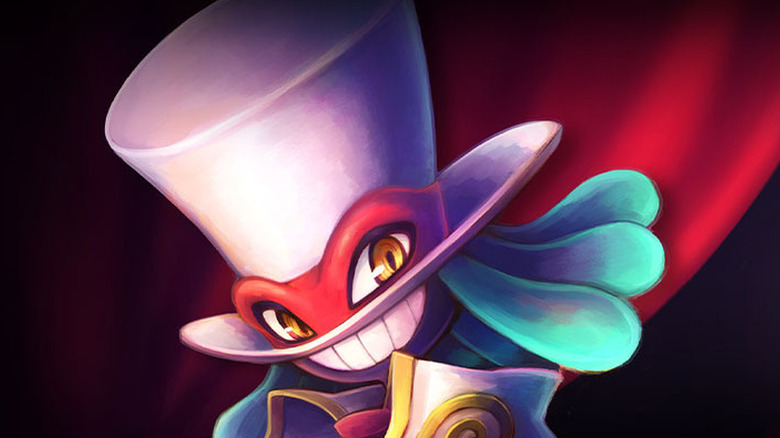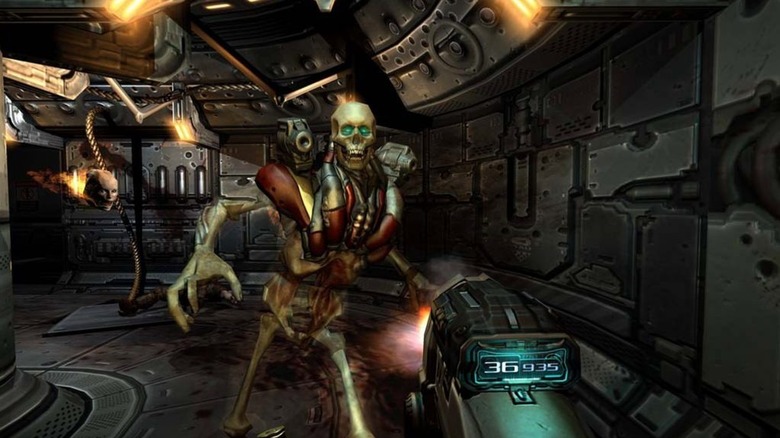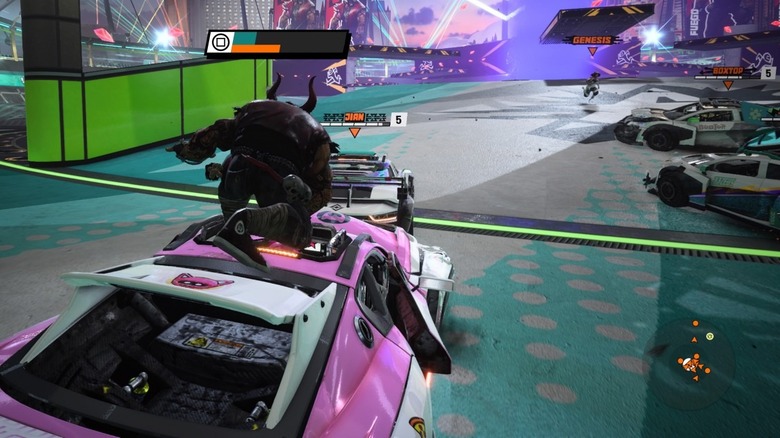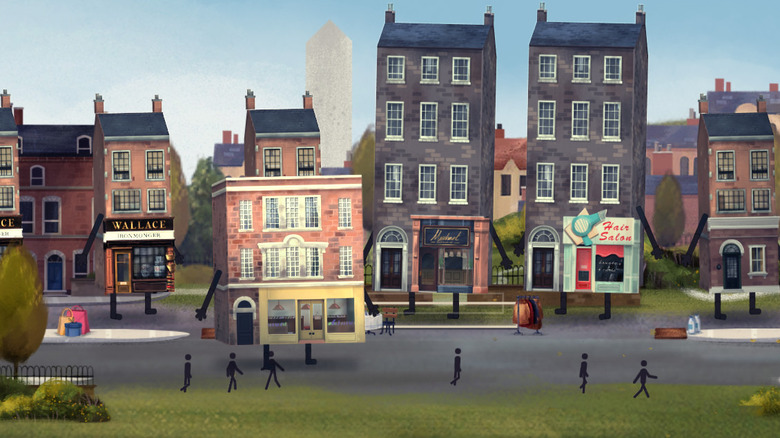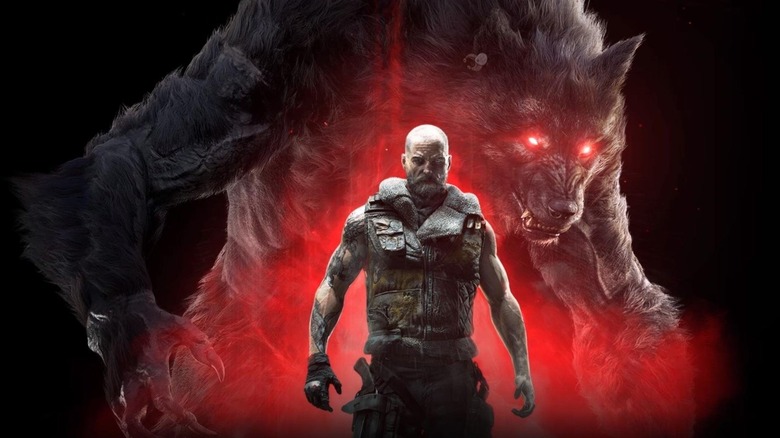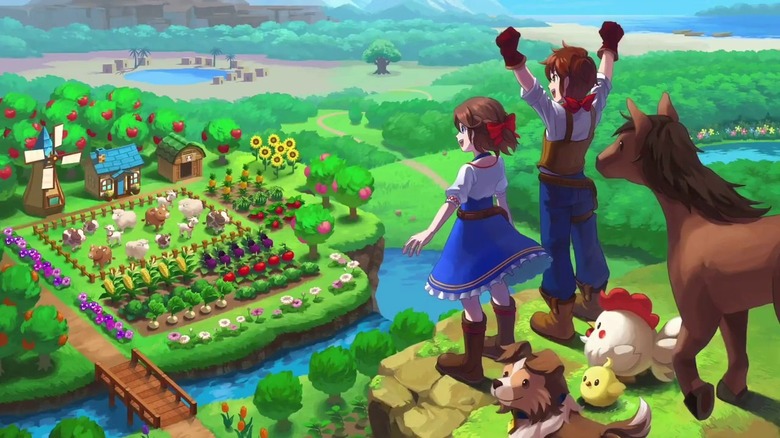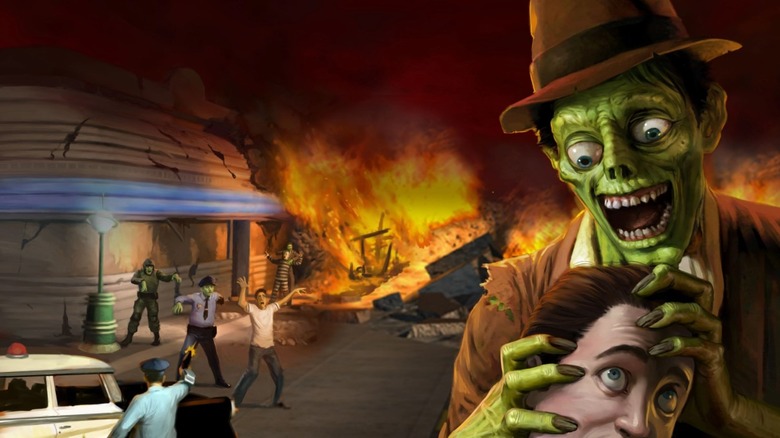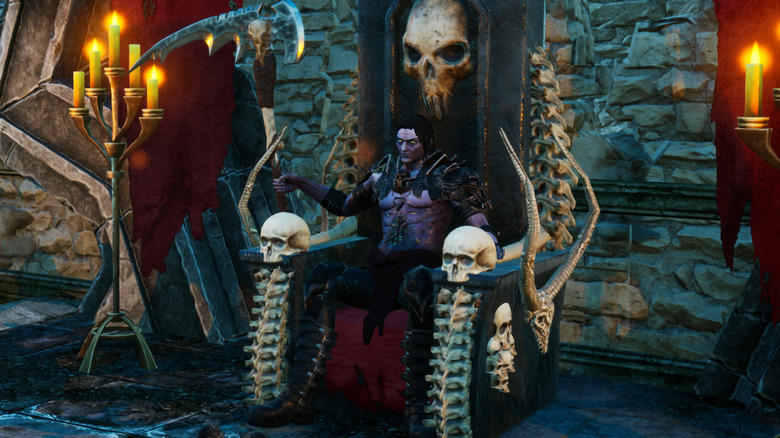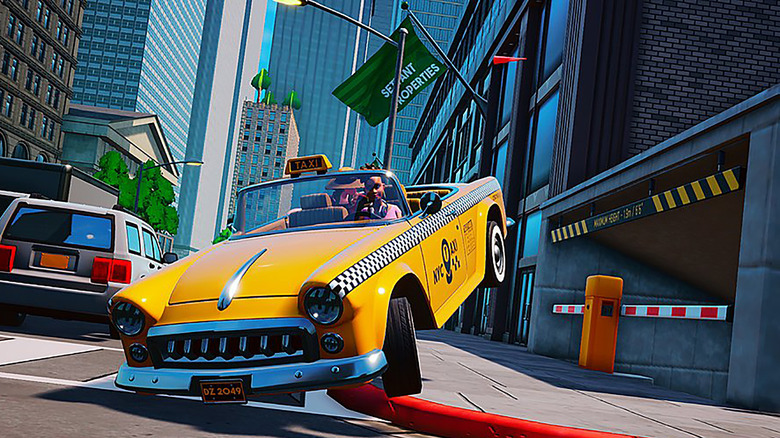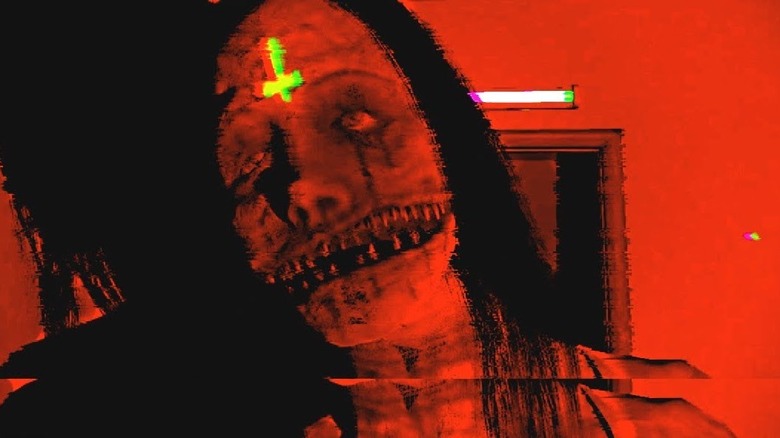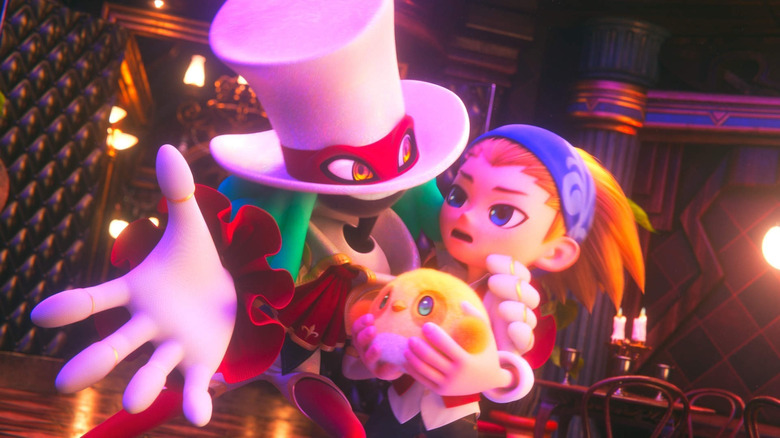The Worst Rated Games Of 2021 So Far
Unlike many other years that are punctuated by smash hits and blockbuster flops, 2021's worst games have been united by a painful averageness. The greatest offenders to date are mostly uninspired titles that have garnered middling reviews or otherwise failed to compete with similar releases in their respective genre.
There are many possible reasons for an underwhelming game, particularly in this year. The coronavirus pandemic had a massive impact on gaming, resulting in game delays and multiple dev teams working from home. Shifts in console generations can be disruptive, as many developers are still acclimating to creating games for the latest and greatest platforms.
On the upside, many of the games here, while objectively the worst of the year, aren't the absolute bottom of the barrel. In fact, some of the games on this list actually have their defenders. In most cases though, a competitor offers an objectively better experience. Here are the weakest titles released in 2021 to date.
10. DOOM 3: VR Edition
In 2020, "Half-Life: Alyx" raised the bar for VR shooters forever, especially those featuring horror elements in a lengthy campaign setting. Even without that comparison looming over "Doom 3's" port to PSVR, the title would still be underwhelming. As noted by IGN, dated (and inconsistent) visuals and a familiar-yet-unrefined corridor shooting formula combine to make for a sloggy shooter, but the real problem is movement. Compared to non-VR versions of the game, "Doom 3: VR Edition" gives the player less control over dodging incoming fire than with a conventional controller or mouse/keyboard set-up.
All that said, "Doom 3" is a classic "Doom" entry that has solid scares, and franchise fans will likely find special appeal in the game's signature selection of insane weaponry. However, nostalgia is not enough to carry the game in the face of narrow level design that turns firefights into frustration. It is worth noting that players have been kinder to the title than critics, with a respectable average user score of 7.2 on Metacritic.
9. Destruction AllStars
Forbes referred to the rollout of "Destruction AllStars" as "a cautionary tale for PS5 and Sony." The PS5 exclusive was originally intended as a full $70 release, but ended up on the PS shop at the budget price of $20 after the title was delayed by three months.
The game's reception has been fairly average, but given the title's billing as a high profile PS5 exclusive, its inability to move the needle may lead to a short shelf-life. Given the game's relatively small player base, the matchmaking system has a small pool of opponents to draw from, leading to developer Lucid announcing on the game's subreddit that it would be padding multiplayer matches with bots out of necessity.
A questionable monetization model makes things even worse. As explained by TheSixthAxis, "Destruction AllStars" boasts a single-player campaign that requires premium currency to unlock content for each character. And if the game is counting on a steady flow of microtransactions, its future seems questionable at best.
8. Buildings Have Feelings Too!
Unlike many of the other games on this list, which have comparable (and superior) competitors, "Buildings Have Feelings Too!" scores points for an original premise, but falls flat by most other metrics.
On Steam, the game bills itself as a combination city builder/puzzle game, with less emphasis on micromanagement, and more narrative elements involving the game's unique living buildings. As Nintendo World Report's review states, technical glitches and slow load times hamper the experience on the Switch, but other issues abound, regardless of platform.
Gaming Age cites poorly-implemented tutorials — with instructions rendered in small text against a dark background — and a surprisingly challenging difficulty level that makes the title hard for new players to adopt. Mistakes in building placement are costly, and even though rewards trickle in steadily, they are not enough to offset the costs of experimentation. Even so, city-building fans who are looking for something different may still want to give the title a look, if only to speculate as to how its creative ideas could be executed more effectively.
7. Werewolf the Apocalypse: Earthblood
Fans of the "World of Darkness" tabletop RPG sub-franchise "Werewolf: The Apocalypse" may get more mileage out of "Earthblood" than most, but the experience is still likely to disappoint. As detailed in IGN's review, the game does not pause to explain its setting's dense lore, resulting in a confusing jumble of terminology that will likely put-off newcomers. Given the depth of the source material, the game's narrative is also disappointingly flat, thanks to Cahal, the game's robotic, leather-jacketed lead.
Even worse, RPGamer noted that the title feels like a throwback to the PS2 era of action game development in nearly every respect. Graphics are unimpressive and animations are stiff, while the stealth and action gameplay relies largely on mechanics that are executed much more effectively in other titles. While critics have been slightly more charitable to Earthblood than most gamers, the title is underwhelming at best.
6. Harvest Moon: One World
As noted by The Guardian's two-star review, "Harvest Moon: One World" is a classic example of a classic franchise failing to innovate and keep pace with the competition. Publications like Game Rant have compared the "Harvest Moon" series to "Stardew Valley," the indie mega-hit that was initially inspired by the "Harvest Moon" Series. Unfortunately, Instead of adding features to exceed or differentiate itself from "Stardew," "One World" coasts on 3D graphics that have less personality than its spiritual successor's charming pixel art.
"One World's" greatest contributions to the franchise are five different biomes that complicate cultivation, as well as a portable "Expando-Farm" that can be easily moved from one location to another. In practical terms however, this does not offer much mechanical variety when compared to changing seasonal cycles. And as noted by Game World Navigator Magazine (via Metacritic), these new features cannot save "One World" from its slow pacing. Siliconera was kinder to the title, arguing that it is a good onboarding point for people who are curious about the "Harvest Moon" franchise.
5. Stubbs the Zombie: Rebel without a Pulse
A remastered port of a 2005 Xbox title, "Stubbs the Zombie" features toilet humor, gameplay, and visuals that have not aged well. The game has landed in the soggy middle of both critic and user reviews on Metacritic. This may be, as Nintendo World Report states, because the game is a product of its time. During its initial release, quirky, open-world sandbox games were in vogue — particularly in the case of games imitating the success of the "Grand Theft Auto" series — but kitsch can only carry a title so far in the absence of memorable writing.
"Stubbs" turns the typical zombie game formula on its head by putting players in control of a shambling brain-eater. Gaming Age writes that the game's stellar soundtrack gives the title a shot in the arm, and felt the game's mechanics hold up for some good, mindless fun. There is a certain puerile pleasure to be found in chomping on citizens and unleashing a zombie horde on the city of Punchbowl, but ultimately, "Stubbs" is probably better off buried.
4. Demon Skin
This "Souls"-like platforming hack 'n slash title has some interesting ideas, such as a unique stance system that changes the way various weapons are used. But, as Well-Played writes, the result is horribly clunky. The narrative, as described on the game's Steam listing, is fairly generic. The main character, "Wanderer" from the supernatural "Order of Wanderers" is caught up in a dark ritual that immediately transforms him into a demon, which sets him on an epic quest to... not be a demon anymore. Familiar narratives could be overcome with thrilling gameplay, but as GameCritics notes, the level and enemy design is monotonous.
These shortcomings are reflected in the game's Metacritic user and critic review scores. Players looking for a punishing "Souls"-like platformer are in luck however, as they are spoiled for superior choices. "Blasphemous" does grimdark violence more effectively, "Dead Cells" has roguelike elements that keep every run fresh and compelling, and "Hollow Knight" offers players a wholly original setting.
3. Taxi Chaos
As reported by Comic Book Resources, Sega gave its blessing to developer Team6 Game Studios for its spiritual follow-up to the classic "Crazy Taxi" franchise. Players who find the anarchic driving of "Grand Theft Auto" to be too tame will likely find the bombastic "Crazy Taxi" formula appealing. That game is a humorous, arcade-style racer where players must complete a sequence of time trial races in the form of delivering cab fares. For many nostalgic fans, the series' absence has been keenly felt, and a revival was inevitable. Unfortunately, as Kotaku has informed "Crazy Taxi" fans, "Taxi Chaos" fails to capture the magic of its spiritual predecessor or put its own amusing spin on the concept.
The game has fared better with gamers than critics, but the general critical consensus is that the game adds absolutely nothing new to the original formula, while also lacking the same comic attitude that made catching fares fun in the original. Players who have never experienced the original "Crazy Taxi" series may want to give "Taxi Chaos" a ride, but everybody else should keep on walking.
2. Evil Inside
An imitator of the now infamous "P.T." gameplay teaser for the cancelled "Silent Hills," "Evil Inside" hopes to tap into the claustrophobic, cerebral haunted house dread that made that demo an unexpected hit. But "Evil Inside" has garnered negative reviews, despite its budget price. GamingBolt states that the entire game is beatable in an hour, which is scarcely longer than the bite-sized "P.T." demo. Without enough time to properly develop a sense of dread, the scares come across as edgy rather than genuinely disturbing. The game's Steam listing repeats the awkwardly phrased beats of its own story.
It does not help that there are stronger alternatives, even though it may cost a bit more to pick up some of those better games. "Visage" offers a similar premise that is executed far more effectively and has received superior reviews. And those looking for a stellar, first-person horror game on a budget should try the overwhelmingly positively reviewed "Phasmophobia", which is available on Steam at the same price point as "Evil Inside."
1. Balan Wonderworld
Easily the most infamous and poorly-reviewed game on this list, "Balan Wonderworld” is a complete and total bomb. The title had a lot of hype behind it due to the involvement of Yuji Naka, formerly the head of Sega's Sonic Team. Unfortunately, even with that and a fantastical art style going for it, "Balan Wonderworld" was universally despised by critics. Siliconera's review argued that the game should have been a movie, because the platforming mechanics are unmemorable and uncomfortable, and its story is primarily conveyed through an e-book that must be purchased separately from the game.
Speaking to IGN, Naka referred to "Balan" as his "one chance" to make a platformer for Square Enix, and it looks like things did not pan out. As reported by Gematsu, Yuji Naka resigned from Square Enix at the end of April 2021, following the terrible reception to "Balan Wonderworld." While he has not revealed the precise reason for his resignation, the timing between his departure and the game's under-performing release is conspicuous at best.

